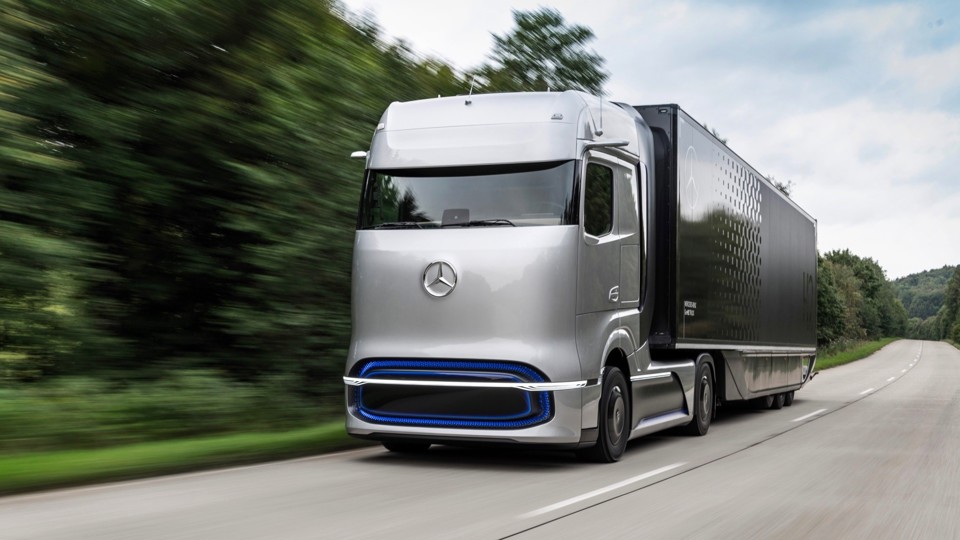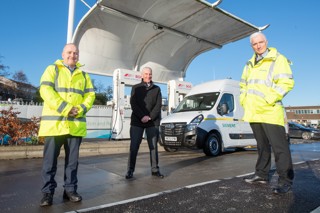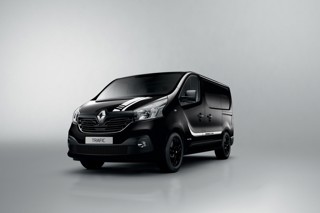Europe’s truck-makers have agreed to work together to help create the right conditions for the mass-market roll-out of hydrogen trucks.
Iveco, Daimler and Volvo have joined forces with energy companies Shell and OMV to form H2Accelerate. They say hydrogen will be an essential fuel for the complete decarbonisation of the truck sector.
The group will lobby policymakers to encourage incentives that can support increased adoption, as well as public support to fund pre-commercial projects.
Elisabeth Brinton, executive vice-president for New Energies at Shell, explained: “Hydrogen-fuelled trucks will need to become available at or below the cost of owning and operating a diesel truck today.
“This means truck customers will need to have access to a fully zero emissions vehicle with a similar refuelling time, range and cost range compared with the vehicles in use today.
“To achieve this ambition a clear regulatory framework is needed, including policies addressing the supply of hydrogen, hydrogen-fuelled trucks, refuelling infrastructure and consumer incentives in a coordinated way.”
The UK Government announced last year that it will end the sale of new petrol and diesel cars and vans by 2030 and is due to launch a consultation on the phase out of new diesel heavy goods vehicles (HGVs).
Julian Critchlow, director general for Energy Transformation and Clean Growth at the Department for Business Energy and Industrial Strategy (BEIS), told MPs on the Environmental Audit Committee last year, that the Government sees hydrogen “having a big role” to play in transport, especially for heavier vehicles.
He highlighted the £23 million programme with the Office for Zero Emission Vehicles, which is looking at funding vehicles and refuelling stations, and the ultra-low emission bus scheme for hydrogen buses, along with the Prime Minister’s commitment for 4,000 new zero-emission buses.
However, Gerry Keaney, chief executive of the trade group the British Vehicle Rental and Leasing Association (BVRLA), says setting a date for the phasing out of diesel trucks and lorries will be a positive step, but HGV operators need a “zero-emission roadmap”.
“Upgrading fleets and refuelling infrastructure to adopt hydrogen or battery electric technology will be very expensive and the Government will need to help operators absorb that cost burden,” he said.
“Many trucks travel huge distances, cross many borders and rely on public fuelling facilities, so UK policymakers will need to align their freight decarbonisation strategy with other countries.”
Daimler Truck AG revealed its fuel-cell concept truck Mercedes-Benz GenH2 Truck, last September. It plans to begin customer trials in 2023, with series production to start in the second half of the decade.
In November, the Volvo Group and Daimler Truck AG signed a binding agreement for a joint venture to develop, produce and commercialise fuel-cell systems.
Meanwhile, Iveco is investing in electric and hydrogen technology with driveline specialist FPT Industrial, also part of CNH Industrial, and through its partnership with Nikola Corporation.
Gerrit Marx, president commercial and specialty vehicles at CNH Industrial, says the industry needs “concrete projects” to show hauliers, and the wider industry, that it is “financially and operationally” viable.
“The ground-breaking H2Accelerate collaboration will create the conditions for this to happen and accelerate the transition to zero-emission transport,” he said.
The hydrogen pledge from truck-makers comes as Renault agreed a partnership with fuel cell systems and hydrogen firm Plug Power to develop hydrogen vans.
Plug Power has deployed more than 40,000 fuel cell systems, designed and built 110 refuelling stations that dispense in excess of 40 tons of hydrogen daily, and is experienced in green hydrogen solutions via electrolysis.
Renault and Plug Power intend to establish an Innovation Centre for the development of fuel cell technology and hydrogen fuel cell light commercial vehicles (LCVs) based on existing and future Renault platforms.
The initial focus will be on the heavy van segment utilising the Trafic and Master vehicle platforms and it hopes to pilot fleet deployments later this year.
Luca de Meo, CEO of Renault, explained that the joint venture aims to create an “end-to-end fuel cell value chain” and offer turnkey solutions for customers including vehicles and refuelling stations.
This article was first published in the January edition of Commercial Fleet.
























Roland Bavington - 28/01/2021 17:03
Why the focus on Hydrogen instead of Electric traction?